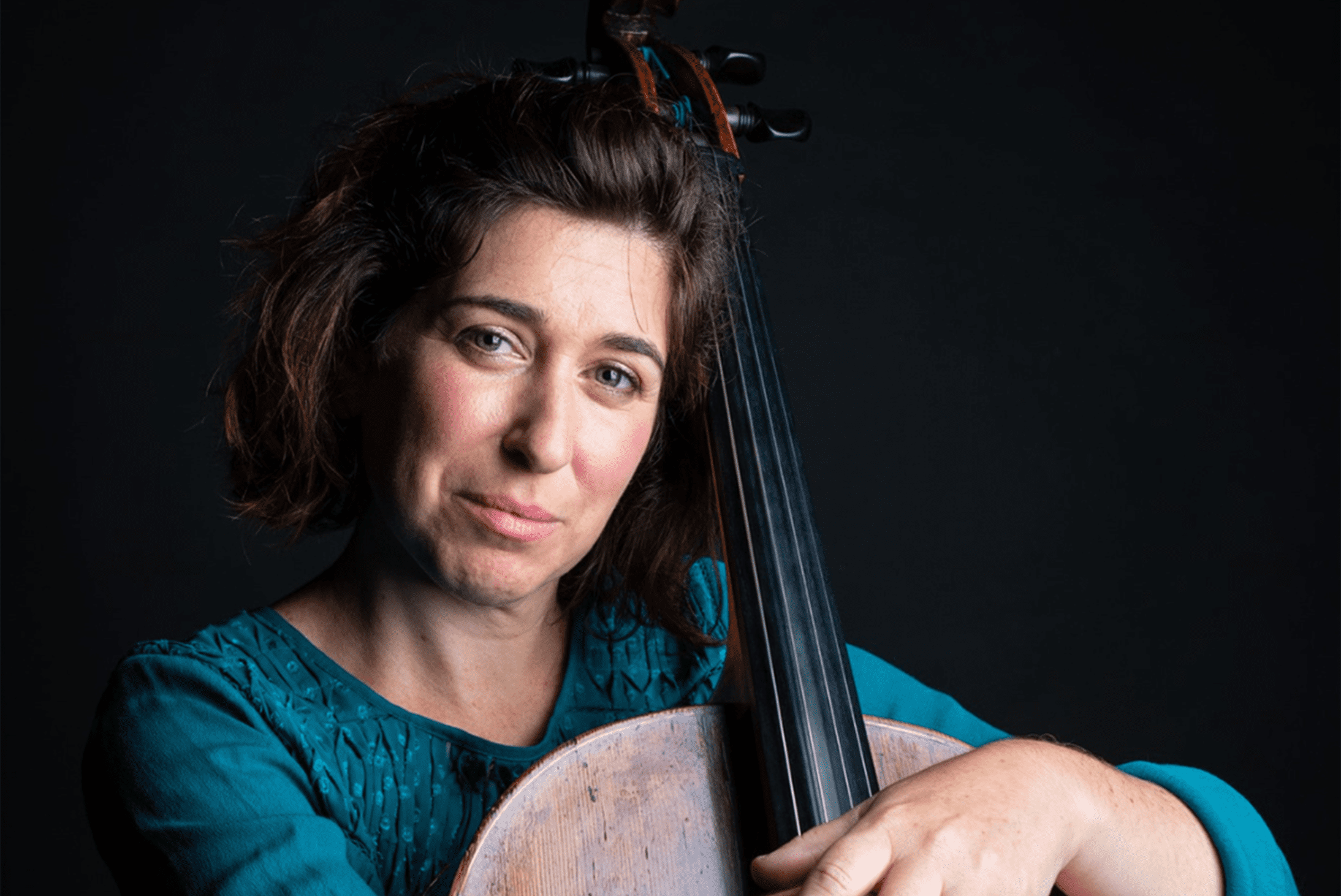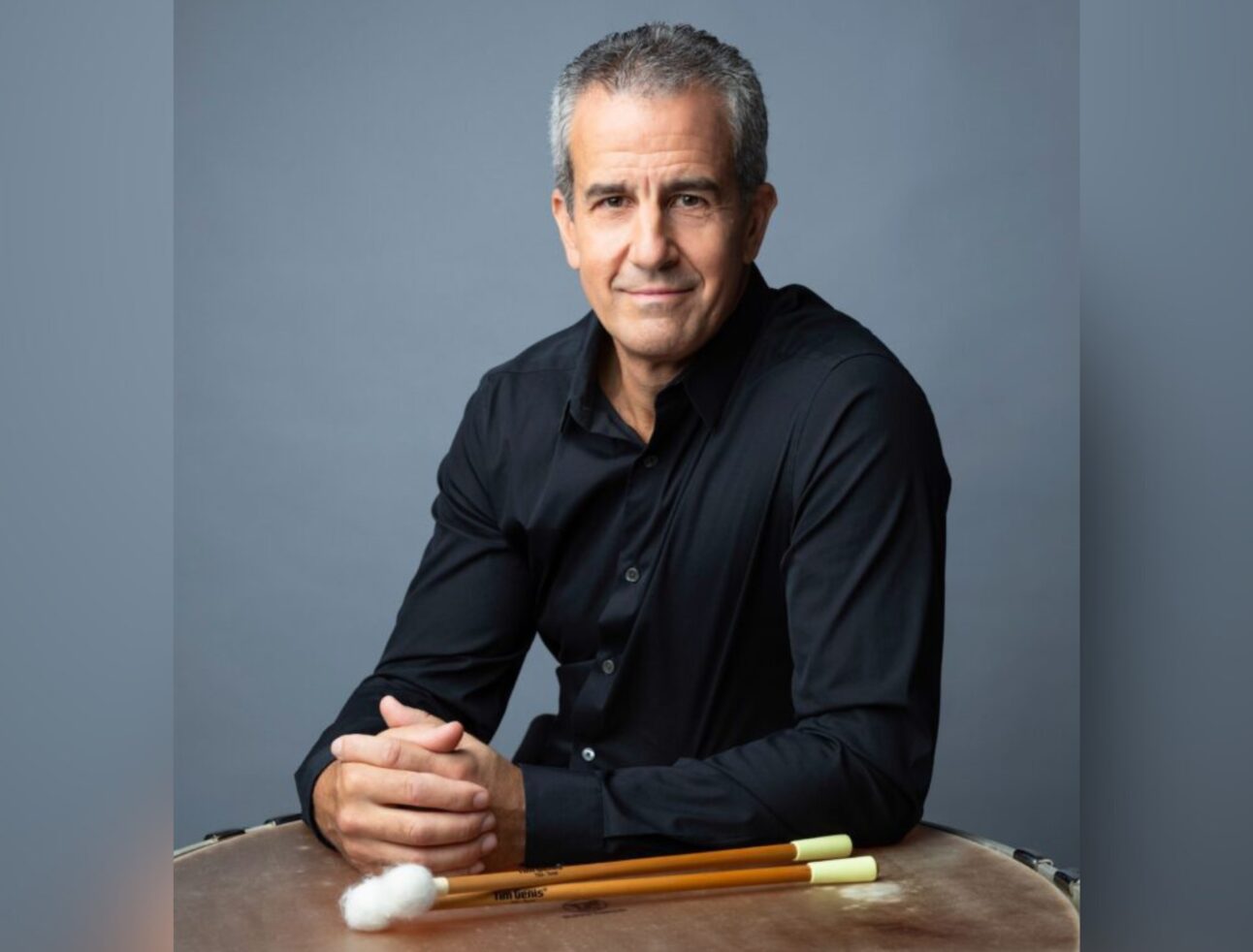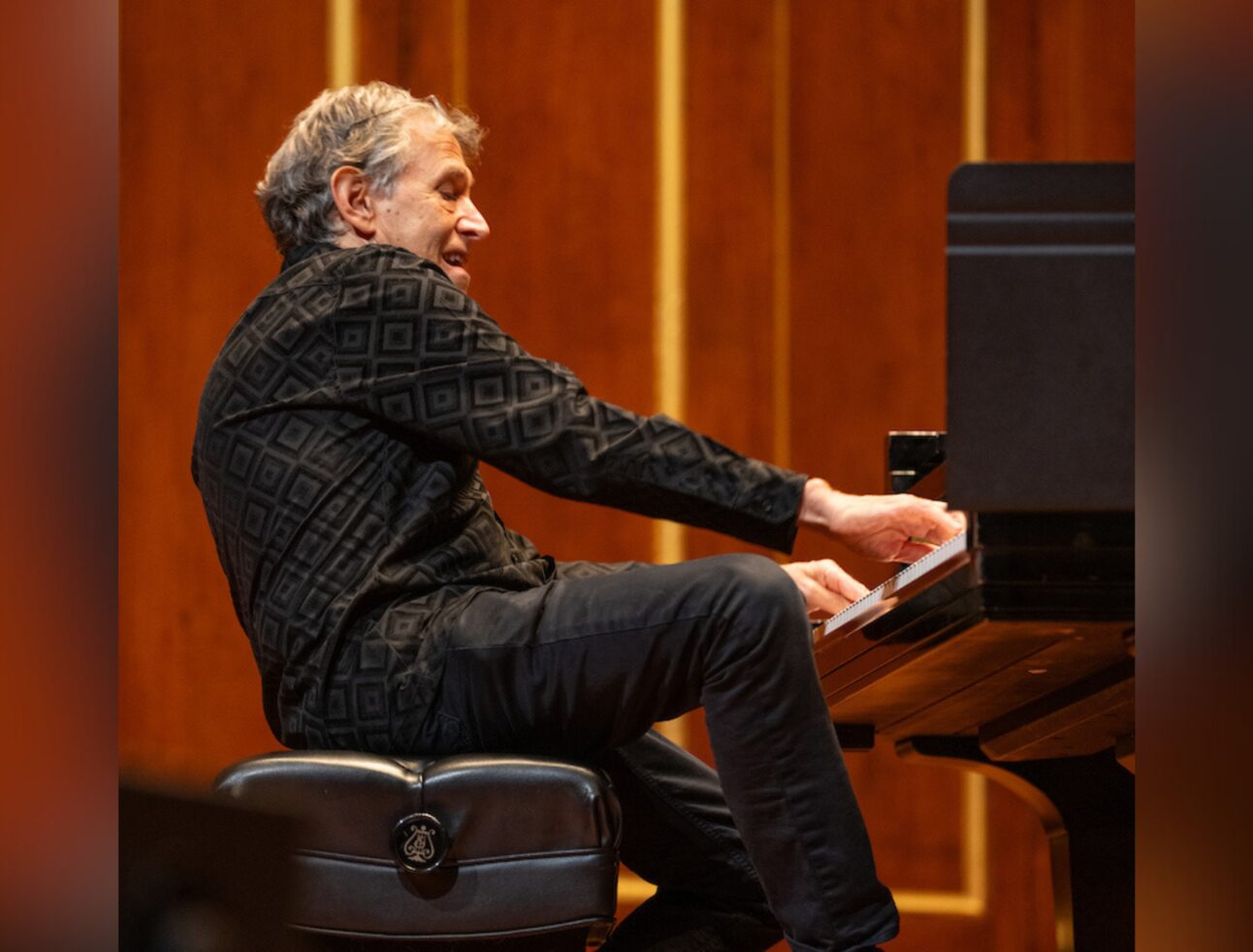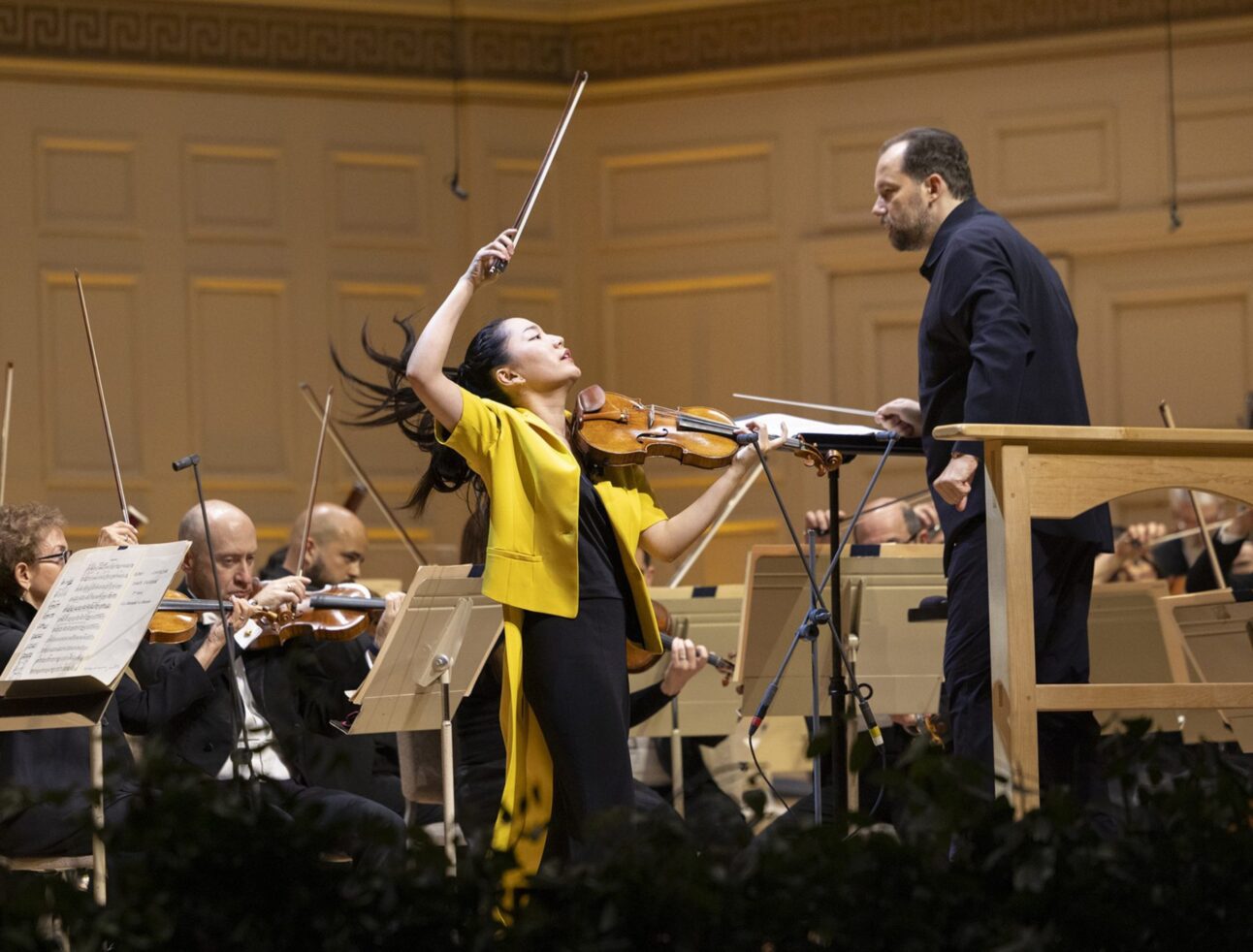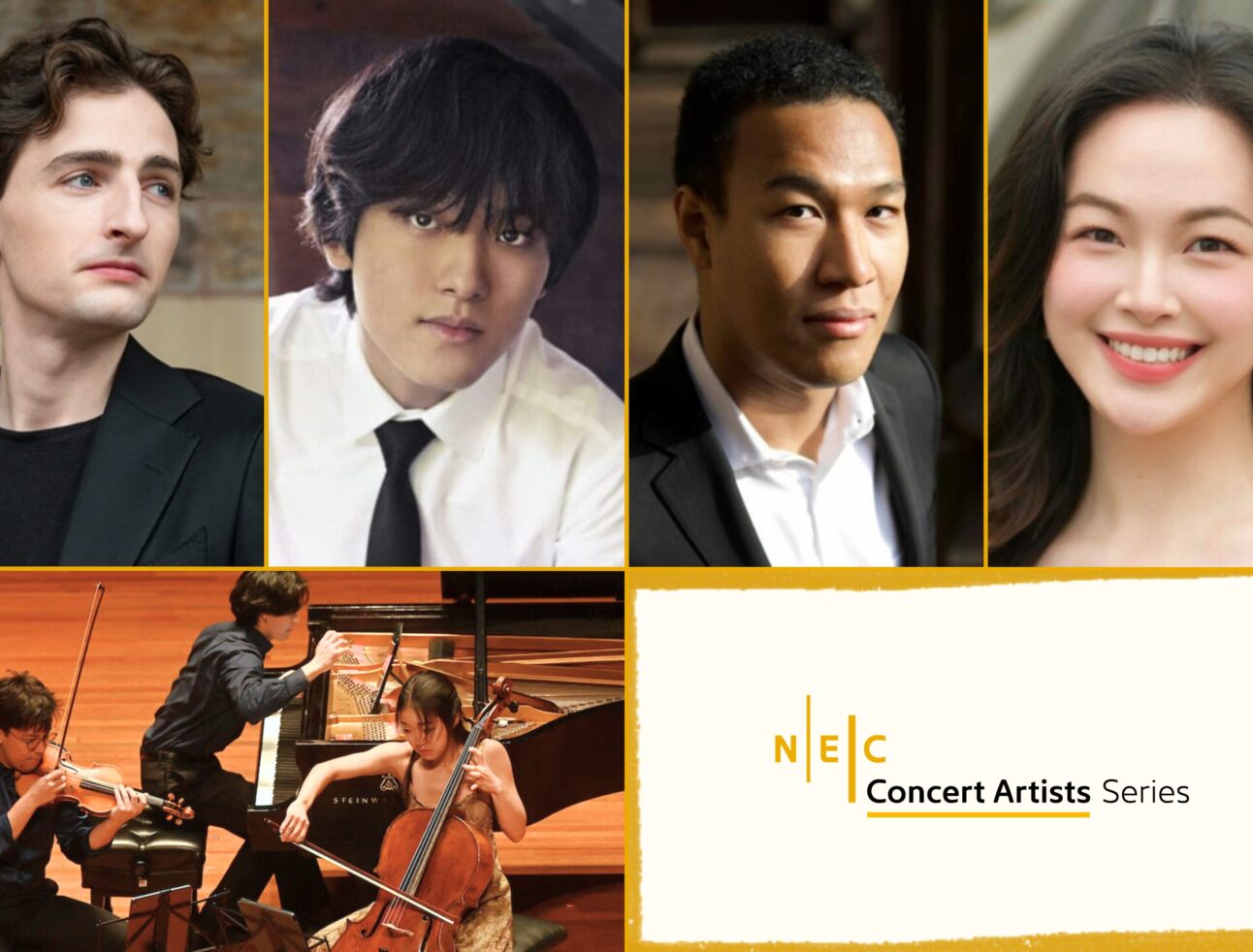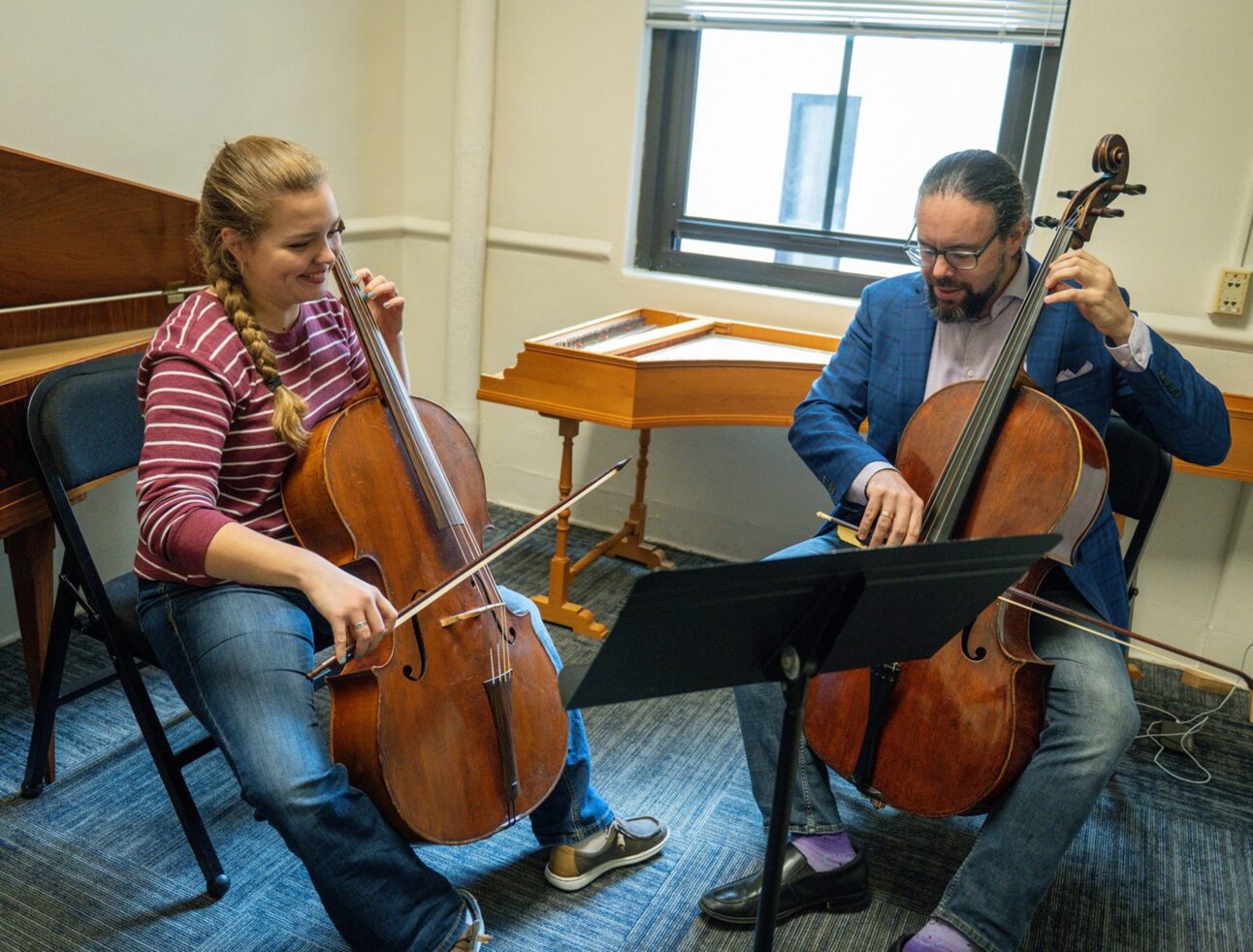Cellist and music educator Michal Shein ’08 MM has built a flourishing career as a sought-after performer and a master pedagogue in music programs across Boston and beyond. As a faculty member in NEC’s Teaching Artistry and Music Education concentration, she shares her expertise with the next generation of teaching artists.
During the 2023-24 school year, New England Conservatory introduced a new academic concentration that has quickly gained traction and established its positive impact among students: Teaching Artistry and Music Education. Recognizing that a robust teaching artist practice is an essential part of a 21st-century musician’s career, the concentration prepares students for the field of teaching artistry as a key complement to their performance studies. Foundations of Teaching Artistry, a course that lays the groundwork for the concentration, is offered by Israeli-Mexican-American cellist, master educator, and NEC alumna Michal Shein ’08 MM.
As an NEC student, Shein participated actively in the Community Performances and Partnerships program, engaging with the Boston community through musical partnership activities. She carried that work into her professional life, where she has found immense success as both a performer and a music educator, with experience teaching at music programs throughout Boston and beyond. She is the creator and artistic director of Cellisimo, an annual international cello festival for pre-professional Spanish-speaking cellists with limited resources. She also teaches at the Boston String Academy, an award-winning El Sistema-inspired string program, and serves on the faculty of the University of Rhode Island.
When Tanya Maggi, NEC’s Dean of Community Engagement and Professional Studies, came to Shein with the idea of joining the Teaching Artistry and Music Education faculty, it was an unexpected but fitting move for Shein. She has built a flourishing career balancing her work as a sought-after soloist, orchestral cellist, and chamber musician with the excellence she has achieved as a pedagogue whose students have won major competitions and received admission to top festivals and conservatories. In this new role at NEC, she shares her expertise with the next generation of great teaching artists.
What did your path into music look like, and how did you decide you wanted to pursue it professionally?
I’ve been playing cello since I was eight. I started in Israel, where I grew up, and continued as my family moved places. We moved to Mexico and then to California, and in all those places, I continued playing. And so it was something very central in my life, though when I went to college, I didn’t actually think I would major in it. I went to UC Berkeley, and despite my mindset that I would study something else, I took some music classes in my first semester. I also joined the university orchestra because I’d been doing youth orchestra forever. And I quickly realized that it was still very central in my life. Undergrad is when I got the bug of delving more deeply into music. Then, I decided to go to Paris to study with Gary Hoffman and Mark Drobinsky. That’s when I started getting even deeper into it and decided I wanted to go to a conservatory. And so I came to NEC, and when I was here, it was clear that I would do music for my career.
When you decided you wanted to go to a conservatory, what brought you to NEC?
It was interesting because one of the things I loved about my undergrad experience was that even though I was at a big university where I could take a lot of courses, I was also part of a more intimate music department. And so, on the one hand, I got a lot of attention and opportunities as a serious performer. But I also really craved to be around students who were just as dedicated as me and playing at a really high level. When I applied to graduate schools, it was an interesting process because I was in Paris, preparing on my own. I didn’t know where I stood because I was working in isolation there. In the end, I got into several East Coast schools and conservatories, which was a nice surprise. And I chose Boston. NEC was an obvious choice, partly because my husband was already here in a doctoral program and it made sense to be close. But for me, NEC was also the ultimate place for string players. And so once I got in and got into Natasha Brofsky’s studio, it was kind of a no-brainer.
You were very involved with the Community Performances and Partnerships (CPP) office while you were an NEC student. What was your experience like working with CPP?
When I first came to NEC, I didn’t know about CPP, and I got involved because I had a clarinet trio. We were an honors ensemble, and part of being an NEC honors ensemble involved outreach work. At the time, that outreach included doing some concerts for kids. I remember writing our first little script for our musical storytelling and working with Tanya Maggi, and it all just felt so fun and easy. Tanya was so encouraging, and working on that project with her was fabulous. It was just really enjoyable. And that led me to be like, “Oh, I’m kinda good at this! Maybe I should do more of this,” which I then did with CPP in many different capacities.
While you were a student at NEC, were any faculty or community members particularly influential to you?
So many! I remember taking Warren Senders‘ class, which felt very different from anything I had taken and it was very eye-opening. I also took the pedagogy class with Magdalena Richter, which was the first time I was introduced to a teacher’s full pedagogy. That was fascinating. Apart from my lessons with Natasha Brofsky, which were mind-blowing and changed my playing so much, I was gravitating toward and enjoying these classes that were different from what I had taken before. I took so many musicology and theory classes during my undergraduate studies, so I really enjoyed taking these more out-of-the-box classes. But, oh, gosh — everybody! All the faculty was just incredible.
You graduated from NEC with your Master of Music in 2008. What brought you back to NEC as a faculty member?
Wow, it’s been a journey. I just started teaching at NEC last fall, so this is a very recent development that I didn’t necessarily envision for myself. I’ve always felt that my path has been quite individual and not exactly what I thought it would be. When I graduated from NEC, I was, on the one hand, very focused, and on the other, very confused. Right out of NEC, first of all, one wonderful thing was that I was the principal cellist of an ensemble called Discovery Ensemble, which went on for about six or seven years. It was an amazing chamber orchestra made up of a lot of NEC students and grads. We were doing educational work along with our concerts, and the CPP work I did at NEC continued because I was doing a lot of presentations in front of a lot of kids. At the same time, I started teaching privately because I needed income. I started teaching in some local music schools as well while thinking about what was next.
My path has been an exploration of gathering many different experiences and tools, and for a long time, I wasn’t quite sure where it would lead. I was running residencies, I was doing concerts, I was getting to know the Boston freelance scene and all the various orchestras, and at the same time, I was teaching privately and really honing in on that work. Around 2015, I started teaching in El Sistema programs. At this point, I’ve taught at many programs in Boston, alongside my playing collaborations, and now running an international cello festival, Cellisimo. And so it’s been this process of figuring out my own path while in the middle, wanting a family and having kids. So when Tanya asked me about the Teaching Artistry program, I said, “Wow, there’s going to be something like this at NEC?” I also realized that it made sense to me why she would ask me to teach within it. So it all aligned, and it feels really amazing to come back to NEC in this capacity.
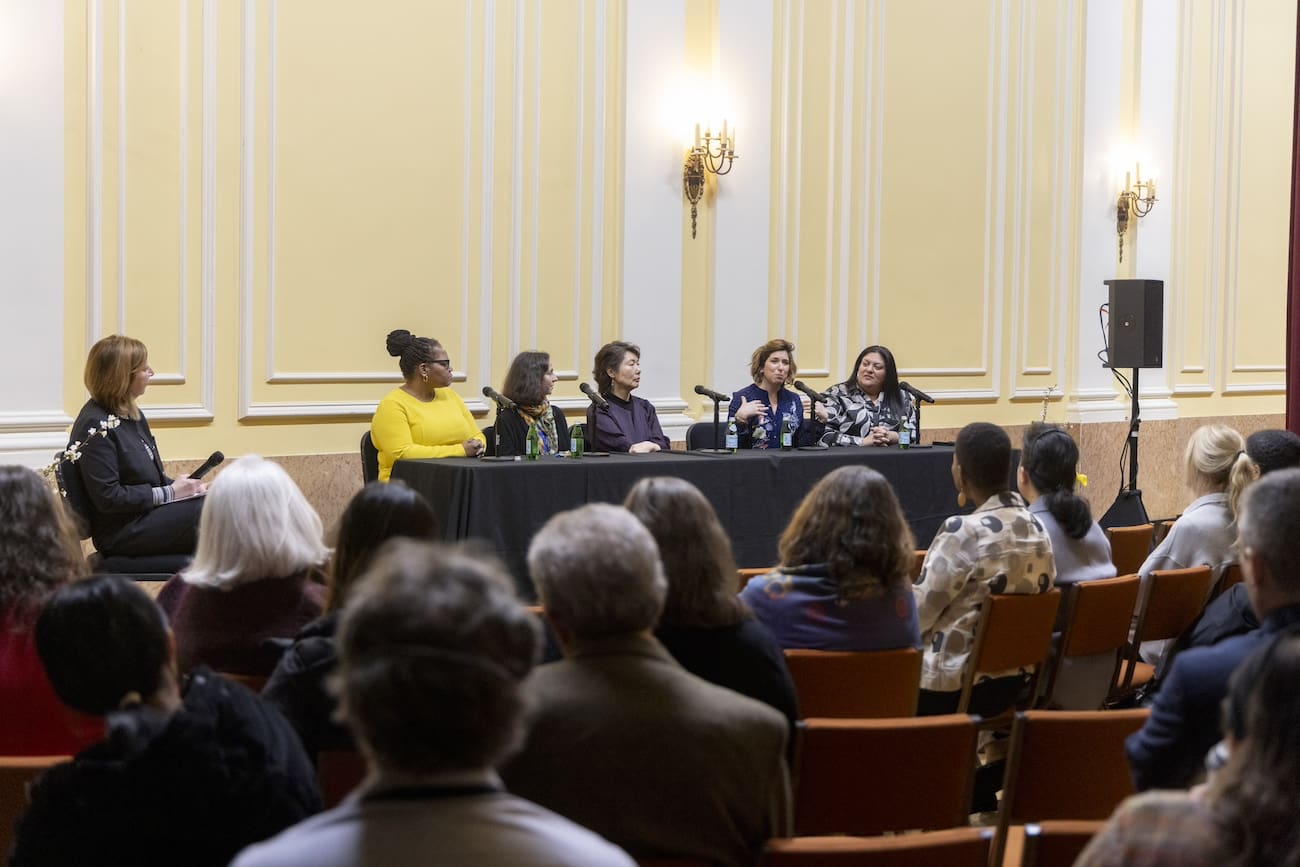
Can you describe NEC’s Teaching Artistry concentration and your connection to it through the course you teach and your work as a capstone advisor?
Tanya Maggi’s and Eric Elmgren’s vision for the concentration was to give students the opportunity to learn about what we mean by teaching artistry and to realize that most musicians are teaching artists in some capacity. At the same time, we have many limiting beliefs about what a teaching artist might be, so the hope is to dismantle those as well.
The idea for the course that I offer, Foundations of Teaching Artistry, was for it to be a requirement for anybody who wants to do the Teaching Artistry concentration but also have it open for any student to take. Last semester, I had a freshman and a DMA student, so it’s really for anybody. I wanted to design the course to give students an entry point to the different settings where teaching artistry and teaching artists find themselves. My goal is for students to feel empowered and inspired to do any kind of impactful work and know that it doesn’t need to look a certain way.
There’s a practical element to the course in that it starts with questions like, what is teaching artistry? How do we even define it? Where might we find teaching artists? Then, we go deeper into different types of educational programs. Within that, there are all these options — you can have a music school, a festival, an El Sistema program, a Suzuki program — there are all these various models. I take students through different bubbles: for example, how do we create a residency, and what does it mean when we come into a community and want to do music or any kind of impactful work? What is our responsibility as artists in terms of that cultural interchange? And so I invite Monique van Willingh in to talk about culturally responsive teaching. But then we’ll also do very practical things like — how do you build a lesson plan? And I have them actually teach a lesson. And we’ll also look into group teaching — how do you teach in a group? We delve as well into early childhood, and I invite Phil Berman from NEC Prep to give a class. We also look into the El Sistema model.
The course covers a lot of different pockets within teaching artistry, so I’m trying to hit them with a lot of resources and at the same time, we also do mindset work. So for example, how do we communicate and present ourselves once we want to teach somewhere? But also, if you want to create a project that no one’s done before, you need to deal with your resistance and imposter syndrome and all the things that come with it and work on being brave and vulnerable. I’m trying to make it as holistic and expansive as possible, and so far, it seems to be a real hit. I think it’s having a lot of important impact. The evaluations from last semester and feedback of this semester has been super positive, and students have shared that it’s been one of the most impactful classes they’ve taken.
As a Teaching Artistry capstone advisor, what learning goals do you want students to have reached by the end of the concentration?
One is having the mindset that whatever they decide to do next doesn’t define how their whole career is going to be. One of the things I really like to teach and talk about is that there’s a season for everything, and just because you’re not doing one project at this time doesn’t mean you’re not going to do it. We can’t do everything at once. I think for students — and this was true for me, too — when you’re about to graduate, you feel like you have to have it figured out, and you’re not going to have it figured out. One way to have it figured out is just by trying something and seeing how it feels. And when you start out teaching, especially right after graduating, there’s a real learning curve. Teaching is so experiential. Yes, you can take pedagogy classes, etc., but at the end of the day, you just have to get in there and do it, and that’s how you learn the most.
The other element that I talk about a lot in my course is the idea of self-reflection. To be a good teacher or a good player, we want to spend a good amount of time reflecting on how things went to improve. And so that’s a skill — the mindset. In addition, I talk about the need to be resourceful and have an entrepreneurial mindset too — okay, you sent an email, you didn’t hear anything back. Is that the end of the story? No. Here are other ways that you can push what you want to happen. And of course,reminding them that the music community is really small, and we can lean into our colleagues, teachers, and contacts within the music world to advance our professional life; it’s really central to the way things happen.
In your own experience, how do you balance your performance and teaching careers, and what would be your best advice for a student who hopes to do the same?
One of the limiting beliefs we discuss in class is this idea that you’re a teacher because you didn’t make it as a performer and that, in actuality, the way things look is that most performers teach in one capacity or another. They find a meaningful way to do it. For myself, I have a lot of self-awareness of where the sweet spot is between teaching and performing in the sense I’ve gotten to know how much I want to teach so that it feels good and I’m not burnt out. Likewise, I’ve gotten to know where the sweet spot is for me with performing. So, for example, right now, being a parent, especially to two young kids, I don’t need or want to be playing a concert every weekend; that is not good for me or my family. However, if I don’t play any concerts, that’s not good for me either, and I’m not able to be a good mom because I’m not feeding myself.
It’s an ever-evolving process. I like to say that it’s a dance, not so much a balance because it’s always changing, from season to season. There are some seasons when I’m playing a lot more and some when I might do more teaching or envisioning work. Right now, I’m not teaching so much privately as I used to because I’m focused on doing larger projects. It’s an evolving process that you want to welcome, and know that things ebb and flow. And that’s okay. This idea that we’re going to do the same thing for years and years — yes, for some people, that’s how it looks. But I think for most musicians, things vary. That doesn’t mean failure. It just means you’re adjusting to your needs and your desires.
Can you tell me about Cellisimo, the international cello festival you founded and continue to run?
When everything shut down during the pandemic, a few pivotal things happened that were the spark for the creation of Cellisimo. During the summer of 2020 I taught online for the Longy Sistema Side-by-Side summer program and had the opportunity to work with a lot of Venezuelan students. It was very palpable the eagerness and the appreciation of the students and that got me thinking – what can I do for these students?
In addition, during that fall, I joined a coaching group for creatives for the first time called Profit Pivot, which was started by another NEC alum, Kate Kayaian ’97. Through that program, I got together with colleagues at a really crucial time when everything was on pause. We were all thinking in our own way about what our careers had been like so far and what innovations we could make, or creative juices we could get flowing while everything was stalled. My personality is that when things are dim or stuck, I need to do something really creative, so I decided with Kate, who then became my coach, to offer an online festival for Latin American students.
The idea was that I wanted to remove any barriers for these students. One of the big things was I wanted the festival to be entirely in Spanish because I knew a lot of these students didn’t speak English. They were playing at a really high level and needed support. Apart from having the opportunity to work with me, I wanted to bring on other teachers who speak Spanish whom the students really admire. Another one of the central things that I wanted for that first festival is I wanted each day to start with a wellness session. During the pandemic, one of the things that really helped me manage my stress and anxiety, especially being a parent with young kids at home, was going a lot of meditation and yoga. I found it really, really healing. I was also seeing firsthand the anxiety felt by my students during the pandemic. So wellness needed to be a central pillar in the festival.
I launched that first festival in the summer of 2021. I had 20 students from seven countries, and they all got scholarships. I still get goosebumps thinking of that first summer because, you know — you can envision something, and you know that you’ve done a good job and you’ve planned it well, but to see something that you’ve planned take life and see the impact that it has on people is kind of mind-blowing. That first summer, the impact that it had was so great that it became obvious to me that I needed to do it again. It was clear that it meant so much to these students. And now, here we are, four years later, and I’m now launching the fourth Cellisimo festival.
Last summer, during the third festival, I said to myself, “Well, this summer will be an experiment. I’ll do it online one more time just to see if it’s still relevant.” I didn’t think it would be because we’re not on Zoom anymore, but once again, the festival was really impactful, pandemic or no pandemic. So, I’m offering it once more online. A big part of Cellisimo is access and there are many advantages of offering it online: nobody has to fly, there are teachers from all over the world. And because most students are in Latin America, we’re all basically in the same time zone, which is helpful. The response to Cellisimo has just been tremendous.
One of the exciting things that has happened since is that more than ten students are now studying here in the United States. This was not the goal of Cellisimo, but one of the things that the festival does is create a network and a support system for students. And so, for those students who want to study here, I’ve helped them connect those dots. Now, I have a master’s student, Nancy Olivares, studying with me at the University of Rhode Island. She has participated in every single festival and is doing fabulously and will attend National Orchestra Institute this summer!
Cellisimo has become something beyond my wildest dreams of what it could be. I think one of the things that really distinguishes Cellisimo is that aside from providing super high-level teaching and very empathetic teachers, it gives a sense of community. We’ll be on Zoom all day, and even after classes are over, the students will just keep hanging out on zoom late into the night. Moreover, they get to connect with other cellists in a deep way, especially in our wellness sessions, where we have the space to be really vulnerable with each other. For a lot of the students, that is not something you do at a music festival. And so it’s very rare for them.It’s also rare for some of them to have a teacher who really honors their mental wellbeing and talks holistically about what it means to be a musician. It’s been an incredible journey.
Your work with Cellisimo reminds me of one of the concepts you teach in Foundations of Teaching Artistry: empowering students with the confidence to create a brand-new program or initiative.
In the final project for the class, I give students several options to choose from, one of which is to dream up a large-scale project. And it’s neat to hear from students like, “Oh, I had this idea but, you know, I don’t know,” and then actually give them some tools to think through what it would look like. I have this magnet on my fridge with a quote from Picasso that says, “Anything you can imagine is real.” And I really believe that. Especially as creatives, the things that we dream up have a lot of substance and a lot of meaning. It’s been an honor to be able to share that with students.
Are there any other creative projects you’re working on right now?
Yes! I have a collaboration with another NEC alumni, Adam Levin ’08 MM, who’s a classical guitarist. He studied with Elliott Fisk. We’ve been collaborating and just released a recording of one of the Vivaldi Sonatas. And we’re putting out a lot of new arrangements. That’s been a really exciting and very new collaboration, and I’m really looking forward to more of that.
One of the nice things that’s been happening now is I’m going to various Latin American countries and festivals and making more connections, interacting with students there, and meeting my Cellisimo students in person at the various competitions. That’s a really exciting development that’s been happening. There’s also my work here with Boston String Academy, which has also been exciting. I started teaching there in 2019 and have really brought their students to the next level. They just played at Carnegie Hall, and one of my students just got into NEC. So that work is also really, really exciting.
What keeps you going?
Whenever I feel like I’m growing in some way, that’s what keeps me going. I’m a naturally curious person. I’m someone who likes to learn new things and feels like I’m being challenged. So whenever things feel stagnant or that I’ve figured it out, that’s when I need to do something new. So, with playing, it’s wonderful because that’s never-ending. With practicing, you’re always creating challenges and there’s always so much to do playing-wise in terms of growing and improving. In all of my work, I seek to grow and learn. And now, through the work of Cellisimo, it’s taking on a different aspect of figuring out how I can create even more impact and how to reach more and more people and students. And so then I’m thinking bigger, bigger and bigger, always thinking through how to expand the level of impact.
